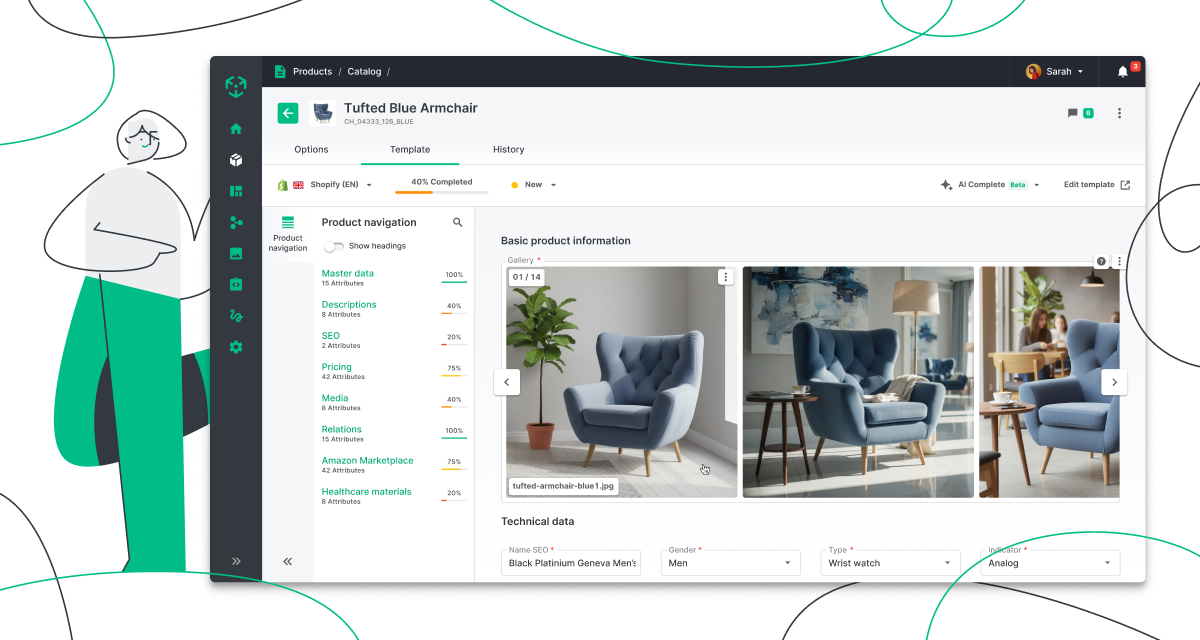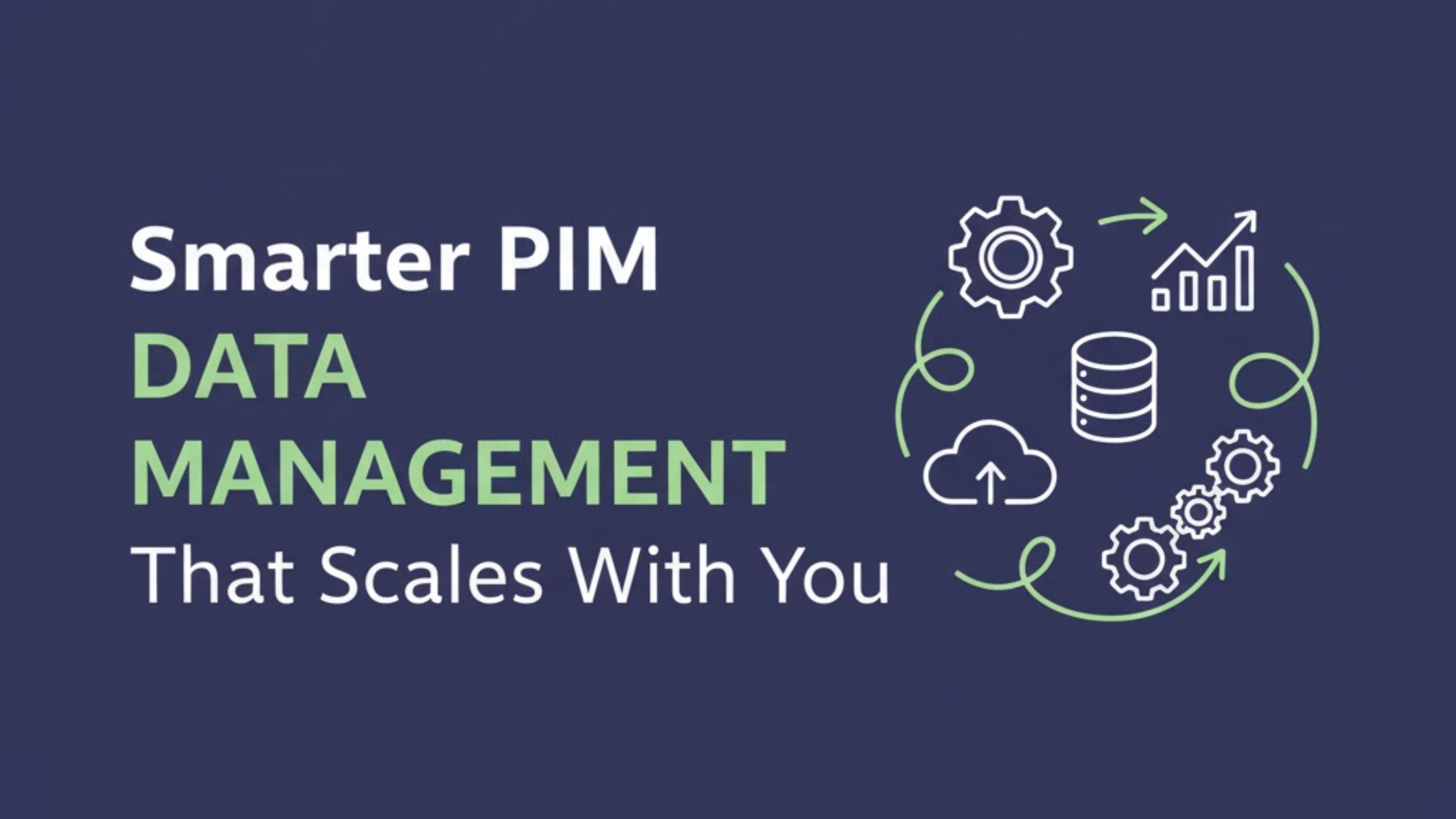20 Crucial Signs Your Business Requires a PIM | Ergonode

Recognizing the Need for a PIM System
1. Inconsistent Product Information
If your business struggles with maintaining consistency in product details across multiple platforms, a Product Information Management (PIM) system can be a game-changer. This is especially crucial if discrepancies in product data are causing customer confusion or increased return rates.
2. Wasted Employee Time
Are your teams spending excessive time on manual tasks like entering data into spreadsheets or correcting errors in product listings? A PIM system automates these processes, freeing up your team’s time for more valuable tasks like strategy and customer engagement.
3. Limited Ability to Scale
As businesses grow, the complexity of managing more products and entering new markets increases. PIM systems support scalability by handling vast amounts of product data efficiently, which is essential for expansion.
4. Poor Customer Experience
Accurate product information is critical for customer satisfaction. A PIM ensures that all product details from dimensions to materials are accurately represented across all sales channels, improving the overall customer experience.
5. Challenges with Multichannel Marketing
If managing product information across multiple channels (like online stores, physical stores, and marketplaces) is overwhelming, a PIM can simplify the process by centralizing data and ensuring it is correctly formatted for each channel.
6. High Return Rates
High return rates can often be attributed to poor product descriptions. With a PIM, you can enhance product descriptions which helps reduce returns due to customer expectations not being met.
7. Compliance Issues
For businesses in regulated industries, ensuring compliance with standards for product information is crucial. A PIM helps manage this by maintaining detailed records and audit trails.
8. Delayed Time-to-Market
A fast time-to-market is essential for staying competitive. PIM systems streamline the process of updating and distributing product information, speeding up the time it takes to launch new products.
9. Inadequate Reporting and Analytics
Understanding product performance is key to making informed business decisions. PIM systems often come with analytics tools that provide insights into product data and customer interactions.
10. Marketing and Sales Alignment
When marketing and sales teams have access to the same updated product information, it results in more effective sales strategies and marketing campaigns. A PIM ensures that both departments are aligned.
Implementing a PIM Solution
Implementing a PIM system involves assessing your current product information management processes, identifying areas for improvement, and choosing a PIM solution that fits your business needs. For detailed insights on how a PIM can specifically benefit your operations, consider reading our in-depth analysis on the 10 advantages of PIM that make your shop work better.
For businesses ready to take their product data management to the next level, exploring the Ergonode Platform can provide an understanding of how advanced PIM solutions enhance efficiency and market reach.
How a PIM System Revolutionizes Business Operations
11. Automation of Data Management
With a PIM system, much of the routine data management is automated. This includes updating, importing, and exporting product data, which significantly reduces the risk of human error and increases data accuracy and reliability.
12. Integration with Other Systems
A robust PIM system integrates seamlessly with other critical business systems such as ERP (Enterprise Resource Planning), CRM (Customer Relationship Management), and e-commerce platforms. This integration ensures that all systems have up-to-date and consistent product information, which is crucial for a cohesive operation strategy.
13. Multilingual and Multiregional Support
If your business operates on a global scale, a PIM system is indispensable. It supports multiple languages and regional adaptations of product information, allowing you to cater to diverse markets without the complexity of managing separate databases.
14. Enhanced SEO Performance
By ensuring consistent use of keywords and meta descriptions across product listings, a PIM can significantly improve your products' visibility on search engines. This drives more organic traffic to your store and can lead to increased sales.
15. Streamlined Collaboration Across Departments
PIM systems provide a collaborative platform for all teams involved in product management. Whether it’s the marketing team needing product details for a campaign or the sales team requiring up-to-date pricing information, a PIM system ensures everyone has access to the same data.
16. Customization and Flexibility
Modern PIM systems offer extensive customization options to fit your specific business needs. Whether you need to track additional attributes for products or customize the workflow of data approval, a PIM can be tailored to support your operations.
17. Advanced Data Security
With critical business data centralized in a PIM system, advanced security measures are typically implemented to protect against data breaches. This is especially important for businesses handling sensitive product information or operating in industries with strict data privacy regulations.
18. Reduced IT and Training Costs
A PIM system simplifies the IT landscape by reducing the need for multiple data management tools. Additionally, training employees is generally quicker and easier as they only need to learn one system for product information management.
19. Sustainable Business Practices
By digitizing product information management, businesses can reduce the need for paper, leading to more sustainable operational practices. Furthermore, better data management means more accurate order sizes, reducing overproduction and waste.
20. Competitive Advantage
Finally, the efficiency, speed, and accuracy provided by a PIM system offer a significant competitive advantage. It allows businesses to respond more quickly to market changes, adapt product offerings, and deliver exceptional customer service.
Taking Action: Implementing a PIM System
For businesses recognizing these signs, the next step is implementing a PIM system. Engaging with a PIM provider like Ergonode can help streamline this process. For insights on how to effectively implement a PIM, consider our detailed guide on how to implement PIM well, which provides valuable tips for a smooth transition.
Additionally, understanding real-world applications and success stories can be highly beneficial. Visit our Success with PIM: Read Our Customer Stories! to see how other businesses have transformed their operations and achieved scalability and efficiency through PIM solutions.






